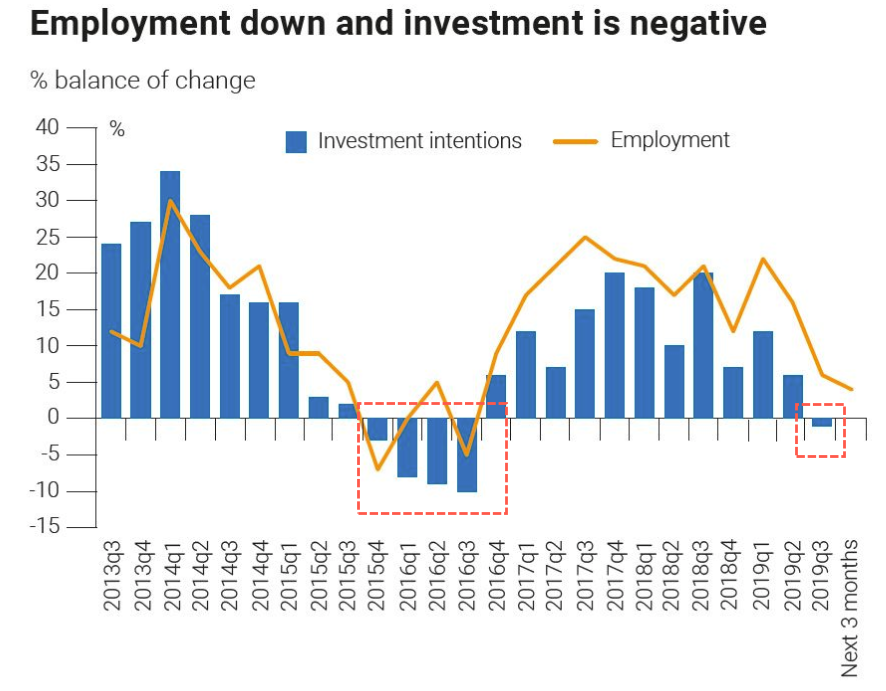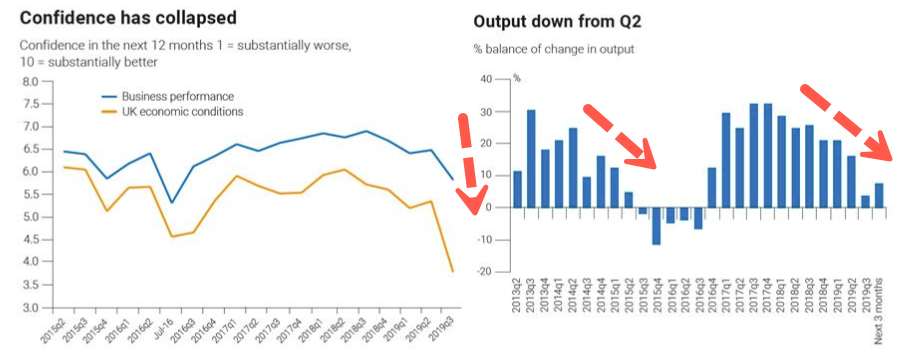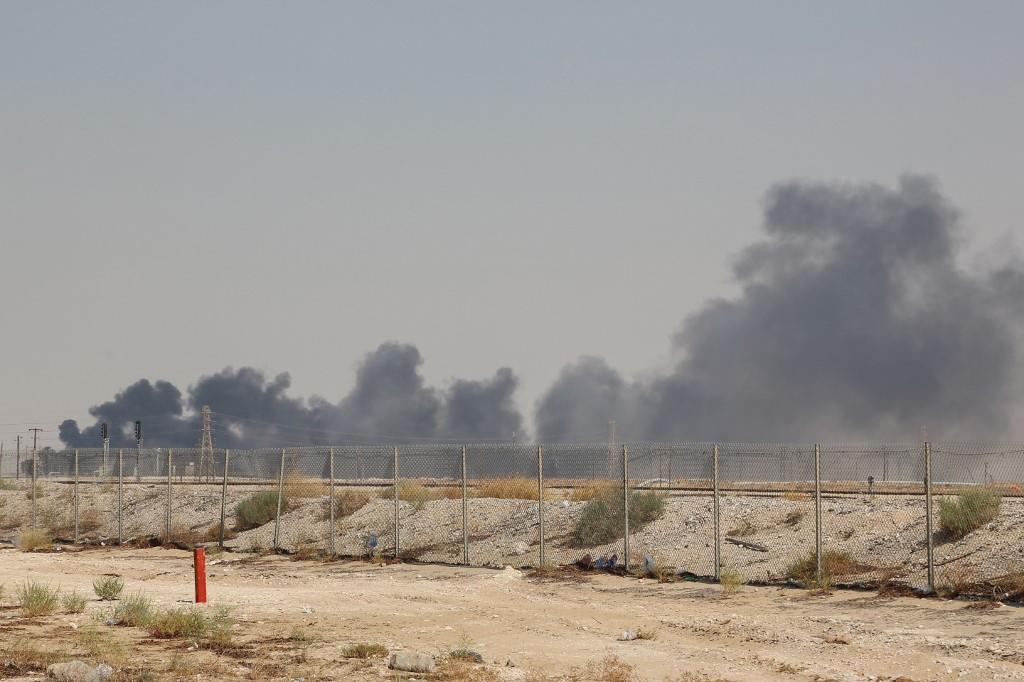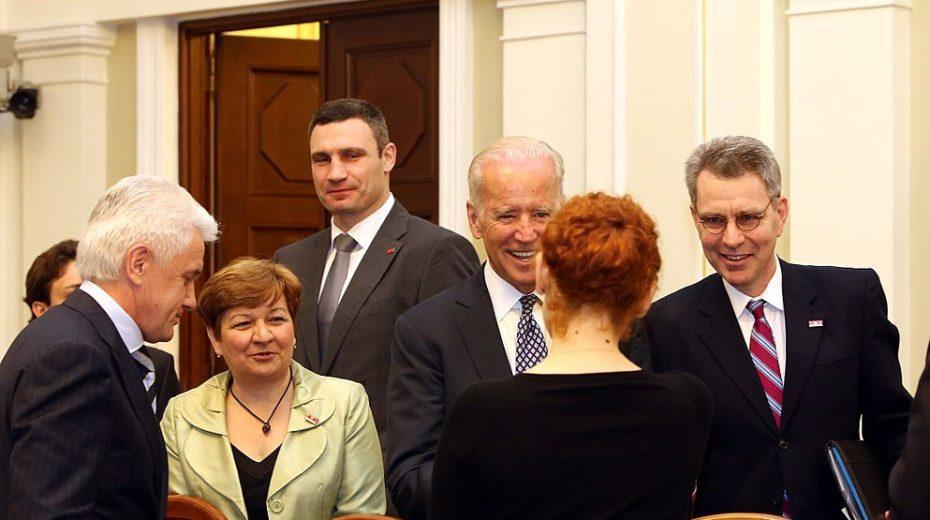Brexit Chaos Forces Jaguar Land Rover To Halt Production At UK Factories For A Week
The UK’s manufacturing sector is quickly scaling back investments and output at a time when the economy is nosediving. Jaguar Land Rover reported Thursday that it would halt car production at its factories in November for a week amid slumping economic conditions and ahead of a Brexit crisis.
Jaguar Land Rover joins BMW and Toyota in emergency preparations to help mitigate any supply chain disruptions from a no-deal Brexit.
Carmakers are also dealing with declining domestic and export orders despite a weakening pound.
The British manufacturing sector is a critical component of the UK economy, employing over 2.7 million people and accounting for 50% of UK exports.
While manufacturing has seen nearly a decade of growth, it could be all coming to an end as Brexit anxieties have pushed UK manufacturing’s output to a 15-month low earlier this year.
Manufacturing remains on a cliff-edge, which uncertainty around Brexit has pushed carmakers into becoming extremely defensive in the next several months.
Prime Minister Boris Johnson has said Britain would exit the EU, with or without a deal, on October 31.
Jaguar Land Rover Chief Executive Ralf Speth said emergency plans have already been enacted, production halts at four British factories will occur during the first week of November.
“I need 20 million parts a day and that means I have to make commitments to my suppliers, I have to have every and each part available and I have to have it just in time,” Speth said.
Toyota in August said it would not make cars at its British factory in the first week of November. BMW said the same as well.
Brexit developments have unquestionably exacerbated the economic slowdown in the UK. This means that the world’s fifth-biggest economy is in danger of entering a recession if the Brexit turmoil intensifies in the coming months.
Tyler Durden
Fri, 09/27/2019 – 04:15
via ZeroHedge News https://ift.tt/2mcX4oU Tyler Durden
















